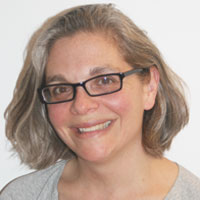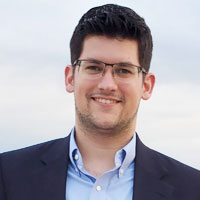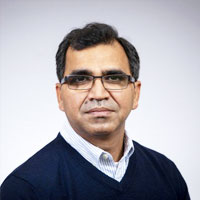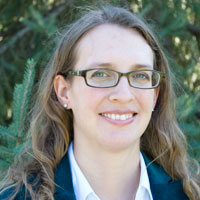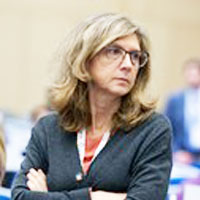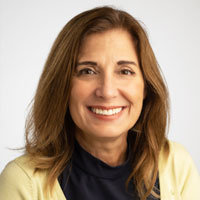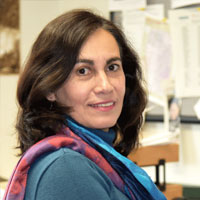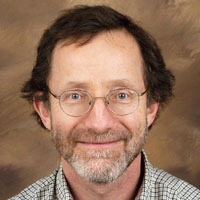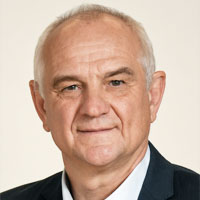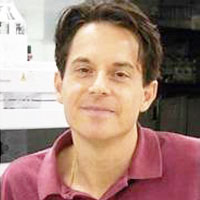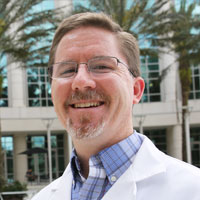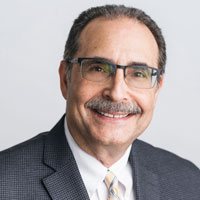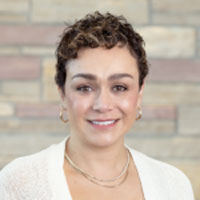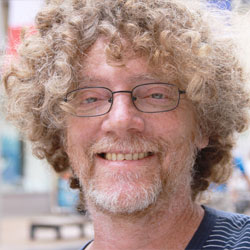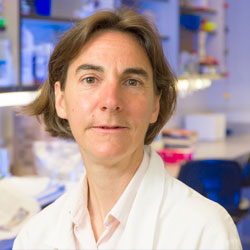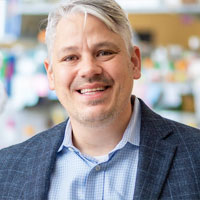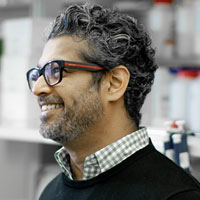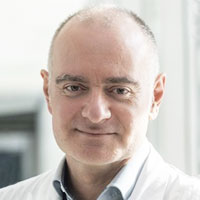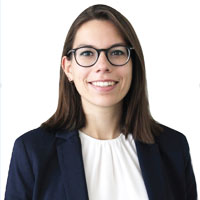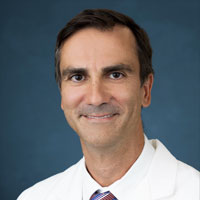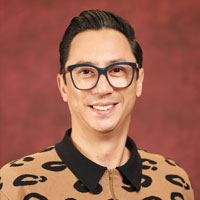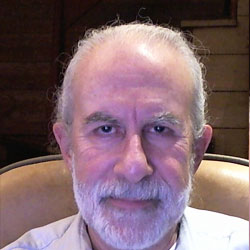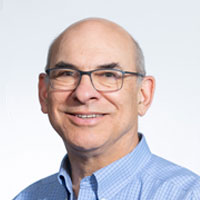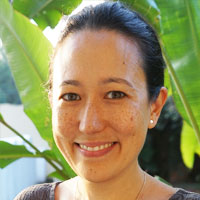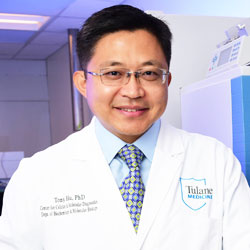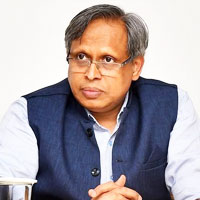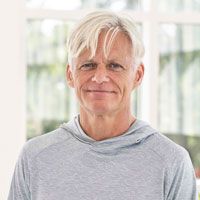Invited Speakers
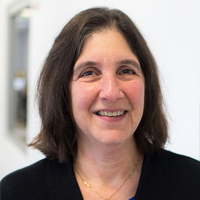
Betsy C. Herold
Albert Einstein College of Medicine, NY, USA
Talk Title: Thinking Outside the Box to Prevent HSV
Biography(+)
Betsy C. Herold, MD, Professor of Pediatrics and Microbiology-Immunology at Albert Einstein College of Medicine, serves as chief of the division of pediatric infectious disease (Children’s Hospital at Montefiore) and vice chair for research in pediatrics. Dr. Herold directs a translational research program focused on the interactions between viruses and their host and using that knowledge to develop new treatment and prevention strategies. The lab’s basic science studies on viral entry led to the discovery of a paradigm shifting candidate vaccine for prevention of herpes simplex virus (HSV) infections, which is being advanced for phase I clinical trials. They are also developing HSV mAbs based on that vaccine and studying previously unrecognized viral immune evasion strategies.
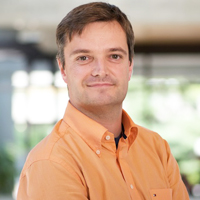
Christian Muenz
University of Zurich, Switzerland
Talk Title: Tissue and T cell Phenotype Dependency of Epstein Barr Virus (EBV) Specific Immune Control
Biography(+)
Dr. Christian Münz received his Ph.D. in 1998 from the German Cancer Research Center in Heidelberg and the Institute for Cell Biology at the University of Tübingen. He joined as a postdoctoral fellow the Laboratory of Cellular Physiology and Immunology at The Rockefeller University, New York, in 1998. At the same institution, he was named research assistant professor in 2001, and assistant professor and head of the Laboratory of Viral Immunobiology in 2003. In 2008, he returned to Europe to the University of Zürich, where he became professor and co-director of the Institute of Experimental Immunology. His laboratory studies the immune control of the human persistent and oncogenic Epstein Barr and Kaposi sarcoma associated viruses, focusing on dendritic cells, natural killer cells and T cells, as well as antigen processing by autophagy. He has published more than 300 articles on these and related topics, and has received the Burroughs Welcome Fund Investigators in Pathogenesis of Infectious Disease Award and the Sobek Award among other honors for his research.
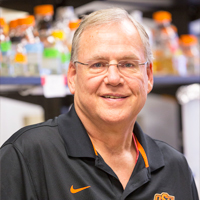
Clinton Jones
Oklahoma State University, OK, USA
Talk Title: Mediation of Herpesvirus Reactivation from Latency by Stress
Biography(+)
Prof. Clinton Jones labs research is focused on two neurotropic herpesviruses, herpes simplex virus 1 (HSV-1) and bovine herpesvirus 1 (BoHV-1). The topics they were examining include: 1) reactivation from latency of neurotropic herpesviruses, 2) identification of cellular genes the trigger reactivation from latency, 3) regulation of viral gene expression during reactivation from latency, 4) viral regulated signal transduction and programmed cell death, and 5) characterization of viral genes expressed during latency. Prof. Jones lab is funded by grants from NIH (NINDS and NIAID), and the USDA National Institute of Food and Agriculture (NIFA).
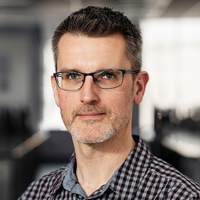
Colin Crump
University of Cambridge, United Kingdom
Talk Title: Correlative 3D Imaging of Herpes Simplex Virus Morphogenesis
Biography(+)
Colin Crump is Professor of Molecular Virology at the University of Cambridge, UK. His research focuses on understand virus-cell interactions and how host cell biology is modified during infection to promote successful virus replication and spread. He has a long-standing interest in the mechanisms of herpesvirus assembly and egress and the application of advanced imaging approaches to study infected cells.
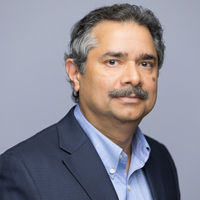
Deepak Shukla
University of Illinois, IL, USA
Talk Title: From Eye to Brain: Pathogenic Mechanisms of HSV-1 in Vision Impairment and Neurological Dysfunction
Biography(+)
Deepak Shukla, Ph.D., holds the Marion H. Schenk Esq. Professorship in Ophthalmology and serves as the Vice Chairman for Research at the Department of Ophthalmology and Visual Sciences. He is also a Professor of Microbiology and Immunology. Professor Shukla has earned significant recognition in his field, having been elected a Fellow of the American Academy of Microbiology (AAM), fellow of the American Association for the Advancement of Science (AAAS), and receiving honors from the American Herpes Foundation for discovering the HSV-1 entry receptor. His specialization in Ocular Herpes Infections encompasses in-depth research into their mechanisms and interventions. His extensive work has been published in over 175 research papers, with his contributions featured in high-impact journals such as Cell, PNAS, Science Translational Medicine, Science Advances, Angewandte Chemie, and Nature Communications. A well-cited scholar, Professor Shukla has accumulated over 20,000 citations on Google Scholar. His research has garnered attention from national institutions such as NIH, NEI, and the American Academy of Ophthalmology, and has reached a wider audience through features in Newsweek, The Atlantic, and Chicago Magazine. Dr. Shukla has been a key figure at UIC, being named UIC Distinguished Researcher of the Year in 2018, University of Illinois Scholar in 2023, and UIC Inventor of the Year in 2024, while serving on various committees.
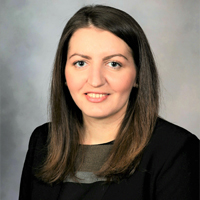
Eleni Panagioti
Harvard Medical School, MA, USA
Talk Title: CMV Immune Responses in Glioblastoma: Cellular Dynamics and Therapeutic Implications
Biography(+)
Eleni Panagioti, Ph.D., is an Instructor in Surgery at Harvard Medical School and Staff Scientist in the Department of Surgery at Beth Israel Deaconess Medical Center. Dr. Panagioti earned her PhD in Vaccinology from Leiden University, followed by postdoctoral training in Brain Tumor Immunology at Mayo Clinic and Brigham and Women’s Hospital. She has a longstanding interest in developing novel therapeutic approaches for treating gliomas and metastatic breast cancer, with a special focus on personalized treatment strategies. Her ongoing research employs innovative virotherapeutics and immunomodulatory methods to enhance both humoral and innate immunity in the treatment of IDH1-mutated brain tumors. Additionally, she investigates the molecular circuits of chronic cytomegalovirus infection to reverse T cell dysfunction in glioblastoma.
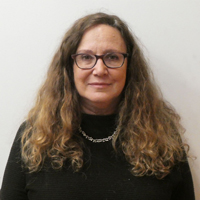
Ethel Cesarman
Weill Cornell Medicine, NY, USA
Talk Title: Can We Target Herpesviral Latency in Associated Cancers?
Biography(+)
Dr. Cesarman was born in Mexico City, where she obtained her MD degree, followed by a PhD from New York University and Anatomic Pathology Residency training at the College of Physicians and Surgeons of Columbia University. Dr. Cesarman was part of the team that discovered the Kaposi’s sarcoma herpesvirus (KSHV/HHV-8) and found that this virus is consistently present in a subset of non-Hodgkin’s lymphomas, designated primary effusion lymphomas (PEL), which led to the recognition of these lymphomas as a distinct disease entity. Current research efforts in the Cesarman lab are aimed at better understanding mechanisms of herpesviral pathogenesis, including the role of herpesviruses in the tumor microenvironment, with the goal of directly therapeutically targeting viral oncogenic signals, or indirectly through immunotherapeutic approaches. Dr. Cesarman has also conducted cancer genomic studies to gain a deeper understanding of the viral and cellular contribution to the tumor genetic and epigenetic landscape, focusing on lymphoma and other AIDS-related malignancies.
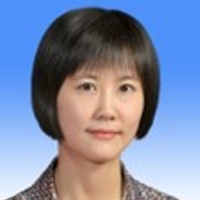
Hongyu Deng
Chinese Academy of Sciences, China
Talk Title: Multifaceted Herpesvirus Tegument Proteins: Virus Assembly and Immune Evasion
Biography(+)
Dr. Hongyu Deng is a professor at the Institute of Biophysics, Chinese Academy of Sciences, and University of Chinese Academy of Sciences. Dr. Deng earned her Ph.D. in Microbiology and Immunology from the University of Rochester, followed by postdoctoral training in cancer biology at Albert Einstein College of Medicine and tumor virology at UCLA. Her longstanding interest is to investigate viral replication mechanisms and virus-host interactions, so as to gain insights into viral pathogenesis and to develop better therapeutics. By integrating biochemistry, genetics, bioimaging, molecular virology and structural biology approaches, her team has systematically investigated the transcriptional regulation, lytic genome replication, and morphogenesis of tumor-associated herpesviruses (especially KSHV and MHV-68). Ongoing studies in her laboratory aims to understand the virus assembly mechanisms, to elucidate the interplay between viruses and the host innate immune system, and to develop new vaccine strategies. Dr. Deng is a recipient of the National Outstanding Young Investigator Grant, among other honors.
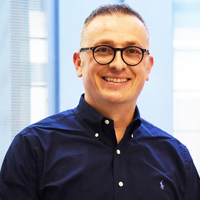
Italo Tempera
The Wistar Institute, PA, USA
Talk Title: Host Metabolic Shift Reshapes EBV Infection Epigenetic Landscape
Biography(+)
Dr. Italo Tempera is an Associate Professor in the Gene Expression and Regulation Program and the Associate Director for Cancer Research Career Enhancement, at The Wistar Institute in Philadelphia. Dr. Tempera earned his Ph.D. in Biochemistry from the University of Rome "La Sapienza". During his doctoral studies, he explored the influence of histone modifications on Epstein-Barr Virus infection. Following this, he pursued further training in the laboratory of Dr. Paul Lieberman at The Wistar Institute, where he researched how the three-dimensional structure of the viral genome governs EBV gene expression during latency. In 2012, he established his independent laboratory at the Fels Institute for Cancer Research at Temple University. Dr. Tempera eventually moved to the Wistar Institute in 2020, where his lab continues examining the role of epigenetic machinery in regulating the EBV-host interaction.
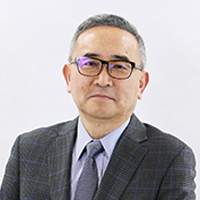
Jae U. Jung
Cleveland Clinic, OH, USA
Talk Title: Structural Analysis of Oncogenic Herpesviral G Protein Couple Receptor
Biography(+)
Originally from South Korea, Dr. Jung began his career as a fellow and later a tenured professor of Microbiology and Molecular Genetic at Harvard Medical School and served as Chair of the Tumor Virology Division (1989-2007). Dr. Jung transitioned to University of Southern California, assuming the roles of Fletcher Jones Foundation Endowed Chair, Distinguished Professor, Chair of the Molecular Microbiology and Immunology Department, and Director of the USC Institute of Emerging Pathogens and Immune Diseases at the Keck School of Medicine (2007-2020). Currently, Dr. Jung is a Betsy B. deWindt Professor, Chair of the Cancer Biology Department, Director of the Infection Biology Program, and Director of the Global Center for Pathogen and Human Health Research at Lerner Research Institute at Cleveland Clinic. Dr. Jung is widely recognized as a foremost authority in the field of herpesvirus-induced cancers, emerging viruses, anti-viral immunity, and the development and stabilization of antiviral drugs and vaccines.
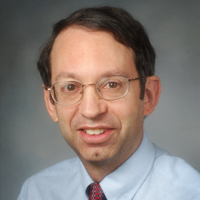
Jeffrey I Cohen
NIAID, NIH, MD, USA
Talk Title: Use of Vaccines and Monoclonal Antibodies to Prevent Epstein-Barr Virus Infection and Disease
Biography(+)
In NIH, Dr. Cohen is the Chief of the Laboratory of Infectious Diseases. His laboratory studies the pathogenesis and clinical aspects of human herpesviruses, including Epstein-Barr virus (EBV) and herpes simplex virus (HSV). The laboratory focuses on vaccine development, discovery of monoclonal antibodies to viral proteins, and identification of cellular mutations in patients with severe herpesvirus infections. Recent findings include development of candidate vaccines for HSV and EBV, monoclonal antibodies to EBV, and identification of cellular genes that predispose to severe EBV infections. Clinical projects include a phase I study of an EBV nanoparticle vaccine, studies of patients with chronic active EBV disease, and studies of patients with severe virus infections to define genetic variants associated with the disease.
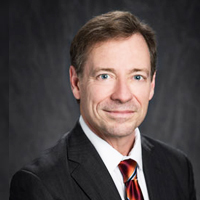
Joel Baines
Cornell University, NY, USA
Talk Title: Revision of Herpesvirus Transcription during Productive and Latent Infection
Biography(+)
Joel Baines received a veterinary degree (VMD) from the University of Pennsylvania in 1983, and a PhD in Virology from Cornell University in 1988. After postdoctoral training in the laboratory of Bernard Roizman at the University of Chicago, he became assistant professor at the Department of Microbiology and Immunology at the New York State College of Veterinary Medicine at Cornell in 1993. There, he worked his way up the academic ranks to be named the James Law Professor of Virology in 2006, and Associate Dean of Research in 2012. In 2014 he was appointed the Kenneth Burns Chair in Veterinary Medicine and Dean of the Louisiana State University School of Veterinary Medicine. He returned to Cornell in 2021 as the James Law Professor of Virology (emeritus) and maintains a NIH-funded laboratory at the Baker Institute of Animal Health. Throughout his research career he has focused on molecular mechanisms underlying herpesvirus replication. Ongoing studies focus on viral transcription during productive and latent infections.
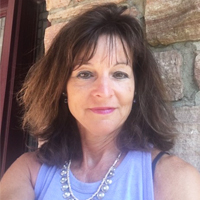
Lori Frappier
University of Toronto, ON, USA
Talk Title: Host Cell Manipulation by Epstein-Barr Virus
Biography(+)
Lori Frappier, Ph.D., is a Professor of the Department of Molecular Genetics at the University of Toronto, where she serves as Associate Chair & Graduate Coordinator. Dr. Frappier directs a research program that identifies the functions and mechanisms of action of Epstein-Barr virus (EBV) proteins. In particular, her laboratory uses proteomics methods to uncover EBV-host interactions and host responses to EBV infection. These studies have led to important discoveries on replication and segregation of latent EBV genomes, destabilization of p53, interference with DNA damage responses, and inactivation of antiviral proteins, together resulting in a better understanding of the viral-host interplay enabling EBV persistence.
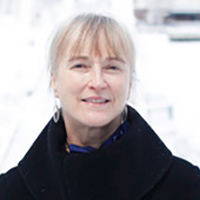
Maija Vihinen-Ranta
University of Jyvaskyla, Finland
Talk Title: Intranuclear Mobility of Herpesvirus Capsids
Biography(+)
The research of Dr Maija Vihinen-Ranta’s group focuses on the interaction between viruses, herpes simplex virus 1 (HSV-1) and parvoviruses, and the nucleus. HSV-1 infection leads to the formation and expansion of the membraneless viral replication compartment for viral DNA replication and progeny capsid assembly. This is accompanied by the reorganization of the host chromatin toward the nuclear periphery. We wish to understand the mechanisms of HSV-1-induced changes in nuclear structures, including chromatin and nucleoli, and the dynamics of viral capsids in the nucleus. We have, for example, shown that capsid transport through the chromatin is the rate-limiting step for the nuclear exit of capsids and that the restrictive chromatin barrier becomes more permissive at late infection, allowing herpesvirus capsid diffusion towards the nuclear envelope. We are also interested in infection-induced changes in nuclear biomechanics and in the structure and function of mitochondria. Our parvovirus studies elucidate infection-induced nucleolar changes, intranuclear mobility, and nuclear export of parvovirus capsids. The lab is funded by grants from the EU Horizon project, the Academy of Finland, and the Jane and Aatos Erkko Foundation.
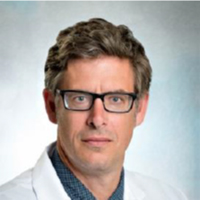
Sean Edward Lawler
Brown University, RI, USA
Talk Title: Cytomegalovirus and Its Role in Cancer
Biography(+)
Sean Lawler leads the Brain Cancer Therapy Lab in the Department of Pathology and Laboratory Medicine at Brown University. He is affiliated with the Legorreta Cancer Center. He is Co-director of Therapeutic Sciences Graduate Program and CNS Cancer Translational Disease Research Group, where he is also the co-leader of Brain Cancer Research Program. The Lawler Lab investigates therapeutic approaches for the treatment of Brain Cancer, from preclinical models to the analysis of data from patient tumors, with the goal of developing the next generation of therapeutic approaches for these extremely challenging diseases. One of the main interests of Dr. Lawler’s lab is understanding the effects of a common pathogen, cytomegalovirus on the growth of the malignant brain tumor glioblastoma.
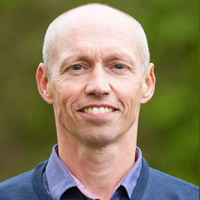
Søren Riis Paludan
Aarhus University, Denmark
Talk Title: Innate Immune Response to Herpes Simplex Virus Infections in the CNS
Biography(+)
Søren Riis Paludan is a professor at Aarhus University, Denmark, where he is director for the Center of Immunology of Viral infections. His research is focused on understanding how the innate immune system is activated during viral infections and how immunological activities can contribute to both defense and disease development. He is recipients of ERC Advanced Grant and Lundbeck Foundation Professorship.
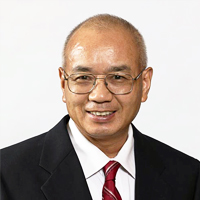
Z. Hong Zhou
University of California, CA, USA
Talk Title: Structural Studies of Herpesvirus Infections
Biography(+)
Dr. Z. Hong Zhou is currently a professor in the Department of Microbiology, Immunology and Molecular Genetics at UCLA David Geffen School of Medicine. He is the founding director of the Electron Imaging Center for NanoMachines (http://www.EICN.ucla.edu) of California NanoSystems Institute (CNSI) at UCLA. Dr. Zhou was a Pew scholar and a Burton medalist. With a doctorate from Baylor College of Medicine and bachelor’s degree from University of Science and Technology of China, Zhou made pioneering contribution in cryogenic electron microscopy (cryoEM). His group demonstrated experimentally the construction of backbone model (Yu et al., Nature 2008) and atomic models (Zhang et al., Cell, 2010 and Liu et al., Science 2010) of large biological machines solely by cryoEM. By cryoEM, his group also determined genome structures inside viruses (Zhang et al., Nature, 2015; Dai et al., Nature 2017; Liu et al., Nature 2019) and atomic models of herpesviruses (Yu et al., Science 2017; Dai et all, Nature 2019, Science 2018; Gong et al., Cell 2019). In recent years, Zhou has shifted his cryoEM efforts to smaller complexes such as the aging/cancer-related telomerase (Jiang et al., Nature 2013; Science 2015; Cell 2018), gene-editing related spliceosomes (Liu et al., Science 2017; Li et al., Nature 2019), drug design-related membrane proteins (Jiang et al, Nature 2015; Ho et al., Nature 2018) and precision medicine nanomachines (Ge et al., Nature 2020). In recent years, his group developed the cryoID approach for cryoEM (DOI: 10.1038/s41592-019-0637-y) and the IsoNet package (doi: https://doi.org/10.1101/2021.07.17.452128) for cryogenic electron tomography (cryoET), enabling determination of native biological structures at atomic and molecular resolutions, respectively.
